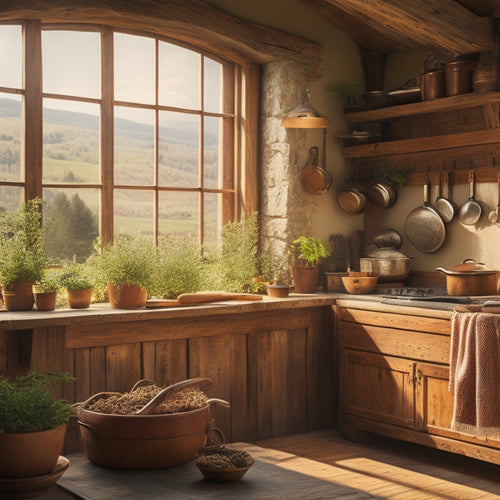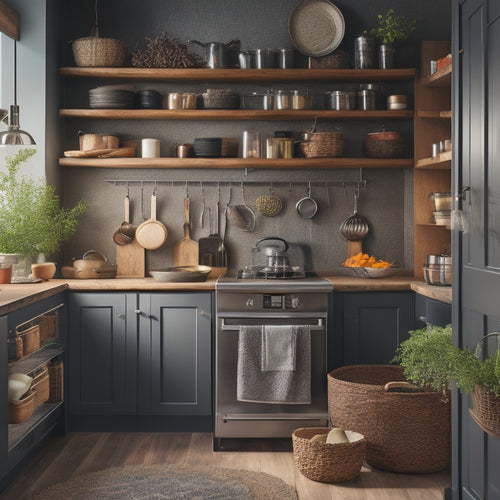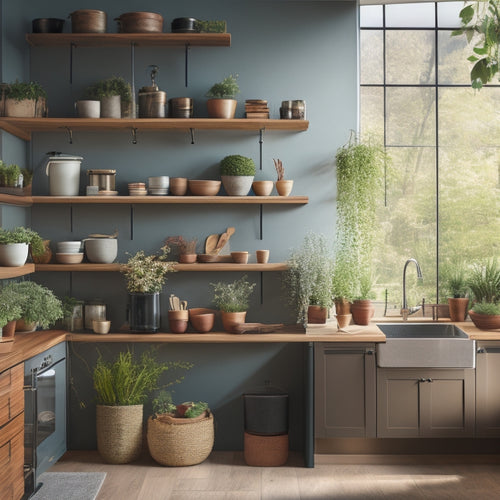
Essential Survival Guide: Protecting Your Family Now
Share
To safeguard your family from unforeseen emergencies and disasters, it's critical to have a well-planned and thorough approach in place. This includes preparing for the unexpected by storing necessary food and medical supplies, evaluating your family's specific needs, and having a safe haven with secure entry points and a backup power source. A well-stocked first aid kit and knowledge of basic first aid techniques, such as CPR and wound cleaning, are also essential. By taking these necessary steps, you can guarantee your family's well-being and safety. Now, discover how to further protect your loved ones against unexpected threats.
Key Takeaways
• Assess family needs, including dietary restrictions and medical conditions, to create a personalized emergency plan.
• Build a safe haven by securing entry points, setting up a reliable backup power source, and ensuring physical space and systems.
• Store essential emergency supplies, including non-perishable food, water, and medical equipment, to sustain your family during a crisis.
• Develop a communication plan, including a rendezvous point and emergency contact numbers, to stay connected during an emergency.
• Learn basic first aid techniques, such as CPR and wound cleaning, to provide critical medical care during a disaster.
Preparing for the Unexpected
When disaster strikes, having a well-stocked emergency food storage and a solid understanding of basic medical preparedness can mean the difference between life and death for you and your family.
An important aspect of disaster planning is having essential emergency supplies on hand, including non-perishable food items, water, and medical equipment. It's crucial to assess your family's specific needs, considering factors such as dietary restrictions and medical conditions.
Building a Safe Haven
Establishing a safe haven necessitates a thorough evaluation of your home's vulnerabilities. This includes securing possible entry points and setting up a dependable backup power source. A safe haven is not just a physical space but a detailed system that guarantees your family's well-being during emergencies.
-
Strengthen doors and windows with robust materials to prevent forced entry.
-
Set up security cameras and motion-sensitive lighting to discourage intruders.
-
Develop a communication plan, including a rendezvous point and emergency contact numbers, to make certain everyone stays connected during a crisis.
Staying Healthy and Safe
Two important components of staying healthy and safe during an emergency are having a well-stocked first aid kit and a plan for accessing medical care. A first aid kit should include basic emergency supplies such as bandages, antiseptic wipes, pain relievers, and any prescription medications family members may need.
It's also vital to have a plan in place for accessing medical care, including knowing the location of nearby hospitals and having a means of communication. Additionally, knowing basic first aid techniques, such as CPR and wound cleaning, can help prevent further injury and promote healing.
Frequently Asked Questions
How Do I Prioritize Essential Supplies for My Family's Unique Needs?
When prioritizing essential supplies, consider your family's unique needs by evaluating emergency communication methods, water filtration systems, and other critical resources to guarantee their safety and well-being in the face of uncertainty.
Can I Use Alternative Energy Sources for Powering My Home?
When considering alternative energy sources for powering your home, explore solar panels and wind turbines for renewable electricity generation, and geothermal energy and hydro power for a sustainable and reliable energy supply.
What Are the Most Important Medical Skills to Learn for Emergencies?
When preparing for emergencies, it's vital to acquire essential medical skills, including basic first aid and CPR techniques, to guarantee you can effectively respond to life-threatening situations and provide critical care until professional help arrives.
How Do I Secure My Home From Potential Looters During a Crisis?
To secure your home from potential looters during a crisis, prioritize home defense and property protection by installing security systems, reinforcing doors and windows, and creating a safe room or panic room with essential supplies.
Are There Any Specific Foods That Are Best for Long-Term Storage?
When selecting foods for long-term storage, prioritize non-perishable items with extended shelf lives, such as canned goods, dried legumes, and whole grains. Implement a food rotation system to guarantee oldest items are consumed first, and always check expiration dates to maintain a safe and nutritious supply.
Related Posts
-

Rustic Hanging Racks for Country-Style Kitchens
Rustic hanging racks are a game changer for your country-style kitchen, blending functionality with charm. They maxim...
-

Over-The-Door Kitchen Storage for Apartment Living
Over-the-door kitchen storage is a smart solution for apartment living, allowing you to maximize vertical space while...
-

Easy-To-Install Kitchen Wall-Mounted Racks
Installing easy-to-use kitchen wall-mounted racks is a smart way to maximize your space. These racks help keep your c...


